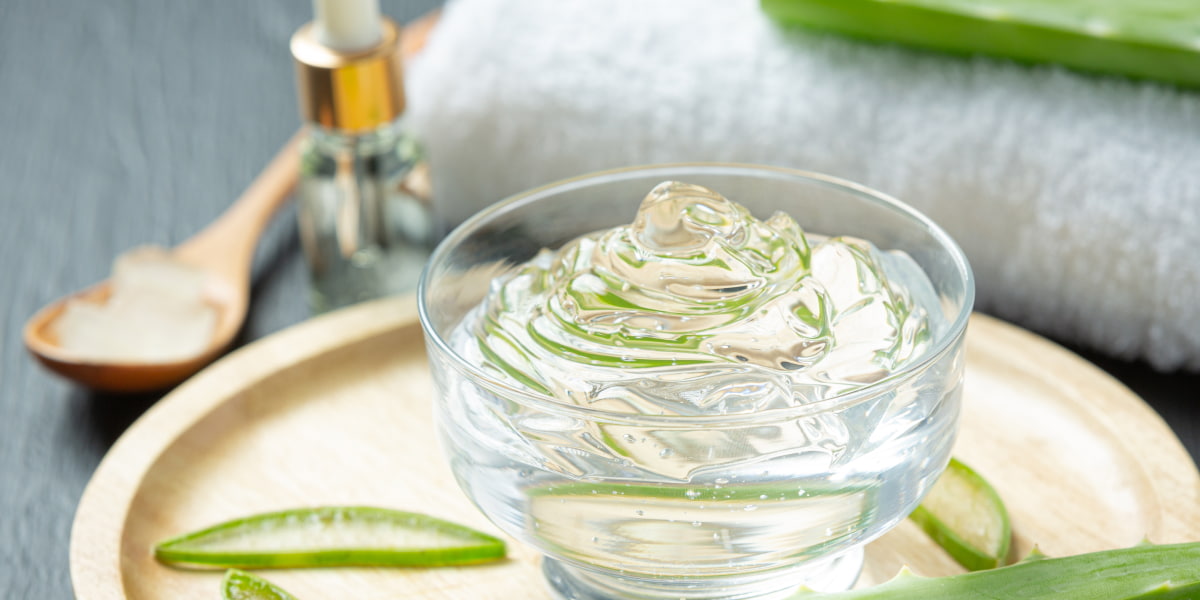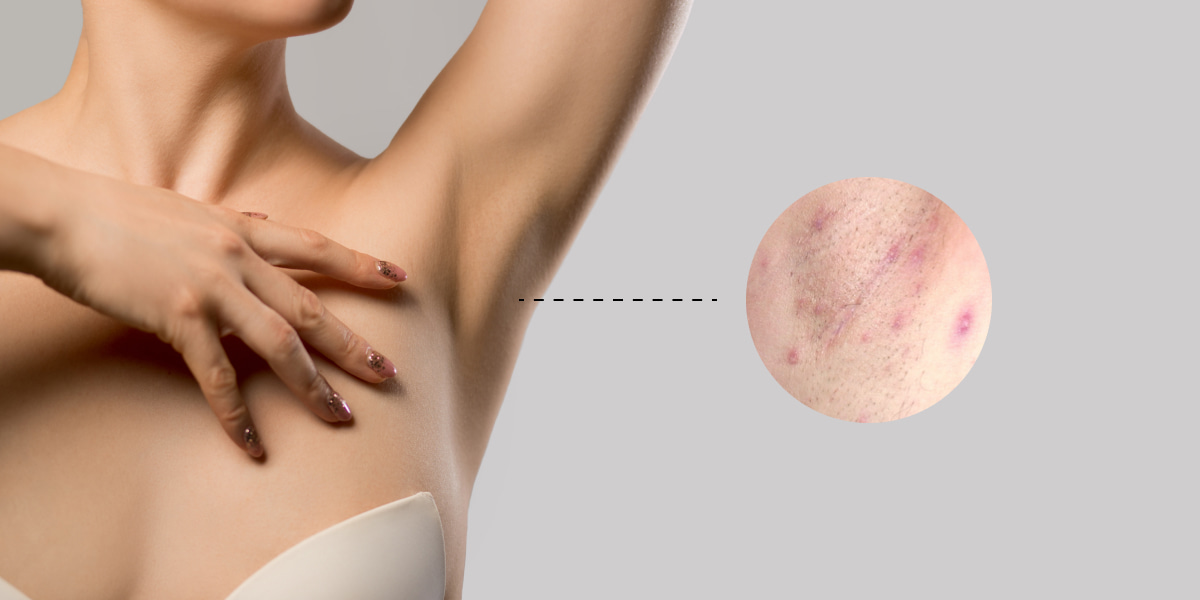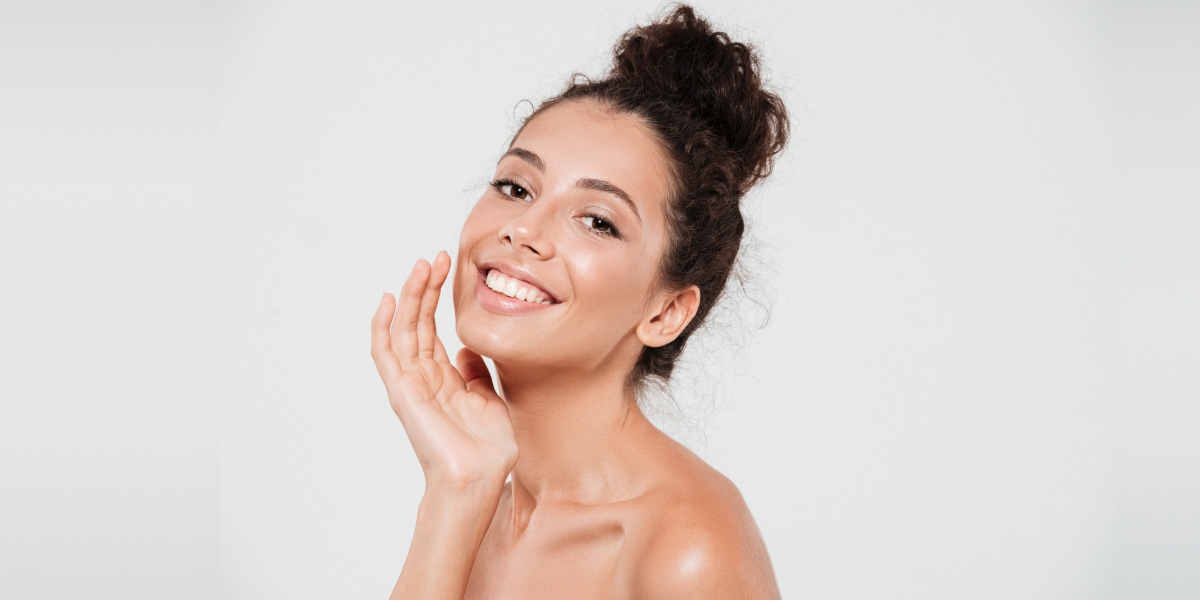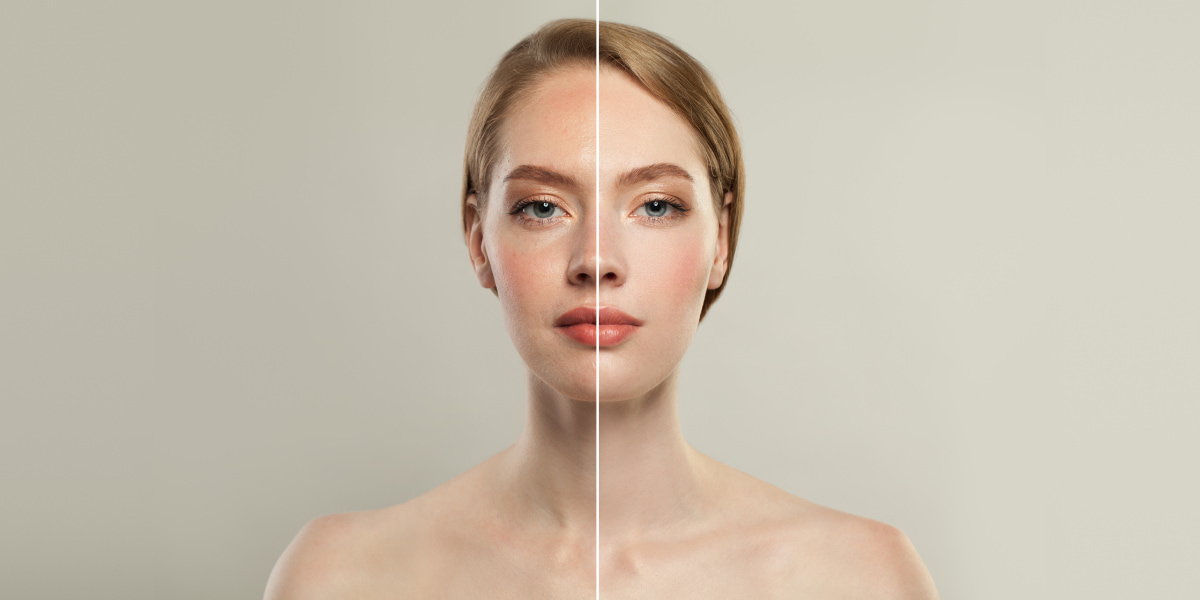Published on December 20th, 2022
Last updated on January 24th, 2023
Taking Zinc For Acne – Does It Really Work? Expert Answer
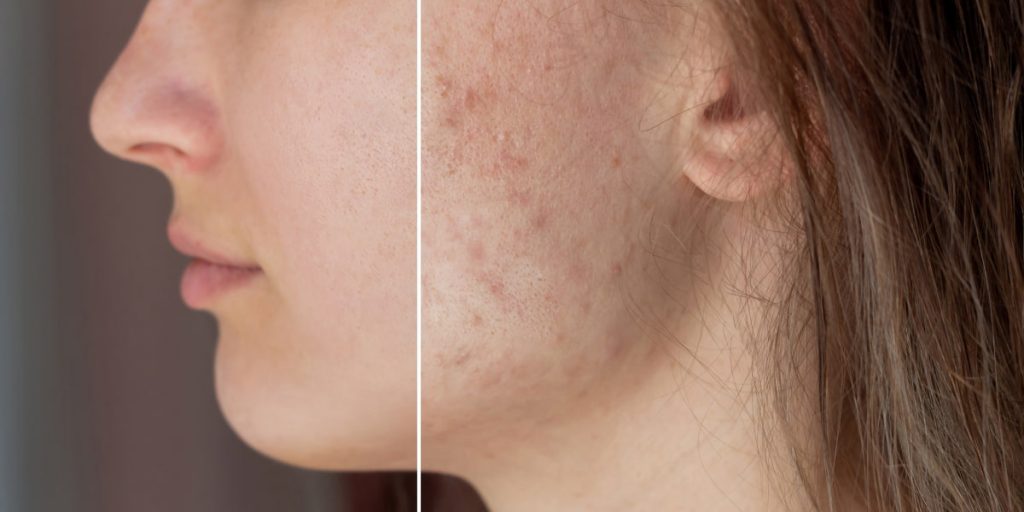
Everyone dreams of clean and well-groomed skin when it comes to skincare. Many people turn to alternative treatments in the hope of reducing acne. We’re talking about zinc oxide for acne.
After all, using creams and gels can be expensive. Well, store care will take up a lot of your time. So, in recent years, zinc has become increasingly good for acne. But many still need to be convinced that this natural supplement deserves its hype.
To clear the air, we consulted cosmetology experts. We decided to get their expert opinion on taking zinc vitamins for acne. Read on to learn more about how zinc can help your skin. And find out what you need to know when deciding whether to add zinc supplements to your daily skincare routine!
Does Zinc Help With Acne?
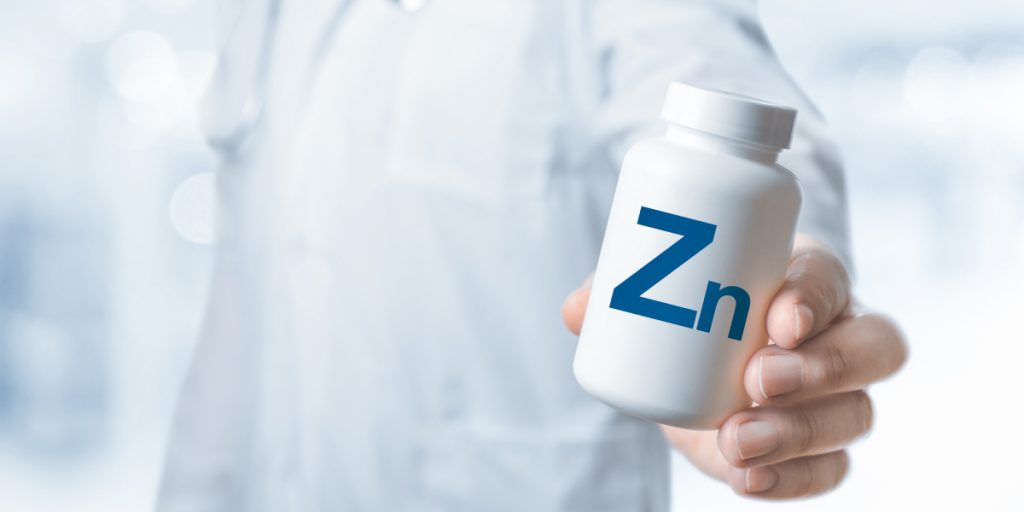
Zinc has anti-inflammatory and antibacterial properties. These properties can effectively treat acne. Zinc reduces inflammation and redness and helps heal lesions. It is good for people with mild to severe acne symptoms.
Zinc can fight the following acne symptoms:
- Black spots.
- Cystic acne.
- Nodules.
- Papules.
- Pustules.
- White blackheads.
Scientists have conducted several independent studies on zinc and acne. Researchers saw a clear relationship between the two.
How Zinc Vitamin Works For Acne
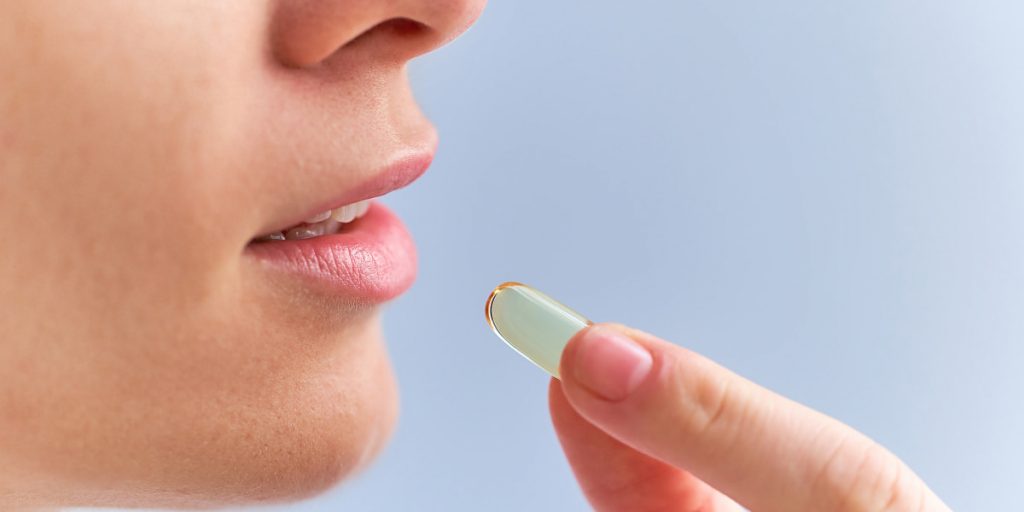
You can take zinc orally as a supplement or topically. Both formulas have many mechanisms that work against acne. As an anti-inflammatory, zinc has antioxidant properties, reducing redness and inflammation.
Zinc also has antibacterial properties. Scientists have proven that it kills Cutibacterium acnes (formerly Propionibacterium acnes). These are the bacteria associated with acne.
Recently, acne-causing bacteria have become resistant to acne antibiotics. An example can be erythromycin. Zinc is a mineral, not an antibiotic. Thus, bacteria cannot become resistant to it. It makes it an excellent acne treatment.
Taking zinc for acne prevents the activation of keratinocytes. These are the cells that produce keratin. Keratin is the binding protein in skin and hair cells. Overproduction of keratin leads to clogged pores and acne. So, naturally regulating its production helps prevent the appearance of acne.
Besides, zinc helps regulate the production of sebum, the skin’s natural oil. It also plays a vital role in the life cycle of skin cells. Zinc deficiency can lead to slower cell turnover, which in turn causes pore buildup. Taking zinc supplements can help regulate this function.
Oral zinc supplements play a role in converting vitamin A to retinol. Retinol is also an antibacterial nutrient that fights acne. Zinc supplements increase the effectiveness of topical retinol. Also to treating and preventing ongoing rashes, retinol also promotes healing:
- Papules.
- Pustules.
- Scars.
Like vitamin A, oral zinc supplements also increase the effectiveness of vitamin E.
Affect Of Zinc On Acne In Details
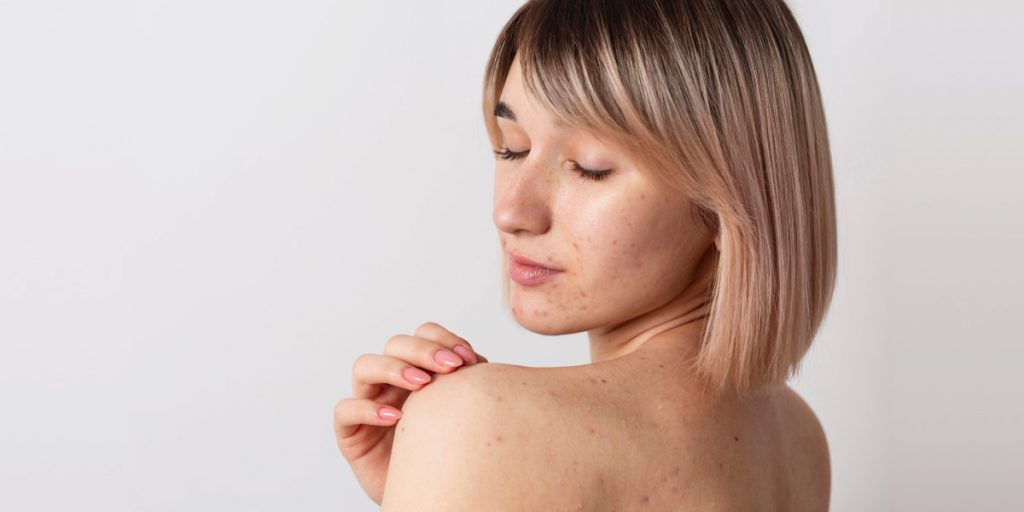
The recommended daily dose of zinc is 9 to 11 milligrams. You can take it in the form of supplements or through foods such as:
- beef;
- pork;
- legumes;
- seeds;
- nuts.
You can apply zinc oxide cream for acne to the affected area for topical application. Zinc oxide creams are sold without a prescription. You can find them in many stores and online. It is standard because zinc helps with acne.
When taking zinc supplements or using zinc oxide cream, it is crucial to follow the instructions on the package carefully. It is also important to note one important thing. Taking too much zinc can cause side effects. If you have taken too much zinc, stop using it immediately and talk to your doctor.
Side Effects Of Taking Zinc For Acne
Zinc, in general, is a safe supplement. But you should never take more than the recommended daily dose. Some side effects of taking high amounts of zinc include:
- Nausea.
- Vomiting.
- Diarrhea.
- Loss of appetite.
- Stomach cramps.
Taking zinc too often to help acne can also reduce iron absorption from food sources and supplements. It will lead to anemia or iron deficiency symptoms such as:
- Fatigue.
- Shortness of breath.
- Dizziness.
See your doctor immediately if you take zinc and experience any of these symptoms. Also, stop taking zinc supplements until they go away.
Alternative Options
Want to use something other than zinc vitamins for acne? Then you can choose an alternative! There are several other alternative vitamin and mineral supplements available. They can help you fight against acne. These include:
It is a herbal extract for topical application. It has antibacterial and anti-inflammatory properties and is rich in antioxidants. You can buy it in the form of a cream or gel.
- Vitamin A
It is an over-the-counter or prescription nutrient (retinol). Vitamin A promotes cell renewal and skin healing.
- Vitamin E
It is a nutrient that you can take as a supplement. It strengthens the immune system and speeds up cell regeneration. But you can also use it as a topical remedy.
You can also use topical treatments containing benzoyl peroxide, salicylic acid, or tea tree oil. They have antibacterial and anti-inflammatory effects.
Conclusion
Taking zinc for acne is a safe and effective treatment. It is effective in reducing the symptoms of mild to severe acne. Zinc also fights the bacteria that cause acne.
But remember to follow the dosage to avoid side effects. Taking zinc properly for acne will help you achieve clear skin without resorting to harsh chemicals.
FAQ
Does Zinc Help With Acne?
Yes, zinc can help with acne. It has antibacterial and anti-inflammatory properties that fight against the bacteria that cause acne.
Can Zinc Supplements Cause Acne?
No, zinc supplements do not cause acne. They can help reduce the symptoms of mild to severe acne. However, taking too much zinc can lead to side effects. It is vital to take only the recommended daily dosage of zinc for the best results.
How Long Should I Use Zinc To Get Rid Of Pimples?
The duration of zinc use for pimples depends on the severity and type of acne. It usually takes about two weeks to see a noticeable improvement in the skin for mild to moderate cases. However, severe acne may take longer. It is best to talk to your doctor or dermatologist for an accurate diagnosis and treatment plan.


